This post is largely for the benefit and interest of foreigners to South Africa.
With the exception of the tip of South Africa, in what we call the Western Cape, ours is a country in which rainfall comes in summer. Our winters, by contrast, are brutally dry. And I really do mean brutally dry. We can see rainfall taper off as early as late March, and not have a drop of precipitation again until October.
Those in tune with our seasons, as I believe I am, are acutely aware of the length and severity of winter’s dryness. Did the rains persist well into April, and did they start as early as August or as late as November? These are the types of questions, the answer to which often defines a flyfisher’s (and a farmer’s!) season.

In an ideal year, we will have summer rain which, quite apart from measuring close to the annual average, persists over several more weeks that could be the case. We are happy if it rains well into April and our rain-fed rivers get a good send-off into winter.
Then in the spring, after our horrid hot “Santa Anna” type winds in August, tropical weather systems start to move up in waves over the Cape and spreading out over the country. On more occasions than we wish, these “cold fronts” disappoint. They bring a light drizzle and mist. This greens the grass, but achieves little when it comes to filling our rivers. In so many Septembers, we live in yearning. Yearning for the first thunder, and drumming rain, a flushing of the trout streams. There have been years where we are kept waiting right up into November, with grass fires persisting, before we all sigh relief and get a good washing.
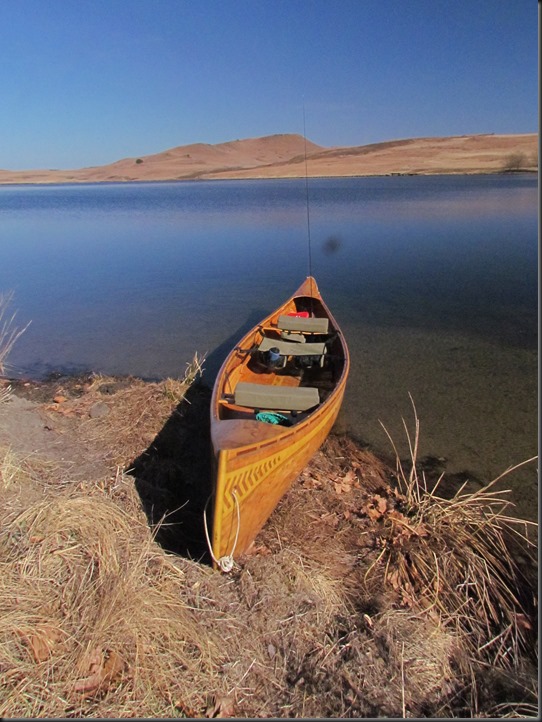
But what of winter? Well, the intervening months are characterised more by drought than by cold, if one measures these things on a global scale. Sure it gets cold here. In the highlands it frosts every night. Record cold temperatures of minus 16 degrees C (3 degrees F) have been measured. But the cold is usually a nighttime phenomenon, like one would experience in a desert. Our winter days can be glorious affairs: sunny and warm but for a little wind chill. Winter in the midlands of KZN province, where I live, is a wonderful time to be out flyfishing. The rivers are closed for the season, but our numerous man made lakes and “ponds”, (in American parlance) offer some superb fishing, with Rainbows of around 3 to 5 lbs common enough.
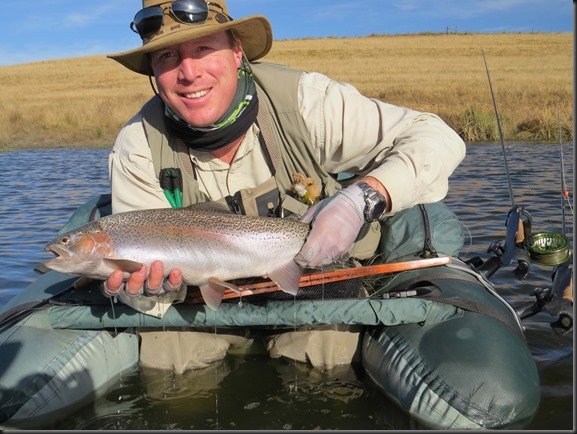
And what of snow? Many foreigners have expressed wonder at the concept of snow in Africa. Sometimes they express disbelief. Those of you who have expressed that disbelief are not misguided in doing so, for snow in Africa is somewhat of an enigma. However the reason for snow being a rarity is not what you think it is. Snow is rare, not because it is not cold here. Snow is rare because winter moisture is rare! In the upland areas where we do our flyfishing for trout, temperatures below freezing are a daily occurrence. The “problem” is that these temperatures are accompanied by exceptionally low humidity.
But every once in a while, us South Africans have a bit of excitement. A cold front comes through in winter, bringing with it rain, and snow. With it comes excitement of the fever pitch variety. We have a website and Facebook page, followed by thousands of us, which predicts, tracks and reports on snowfalls.
Today is warm and windy. The wind is from the north, and the atmospheric pressure is plummeting. I went outside this morning, in mid winter, barefoot and in a t-shirt, to go and fetch something from the car at dawn. I was not cold.
By this evening the wind will have changed. It will be pushing through from the south, and it will be fresh. If the snow predictions are right, we will get rain down here in Hilton where I live, and snow on the mountains. Glorious, African snow!
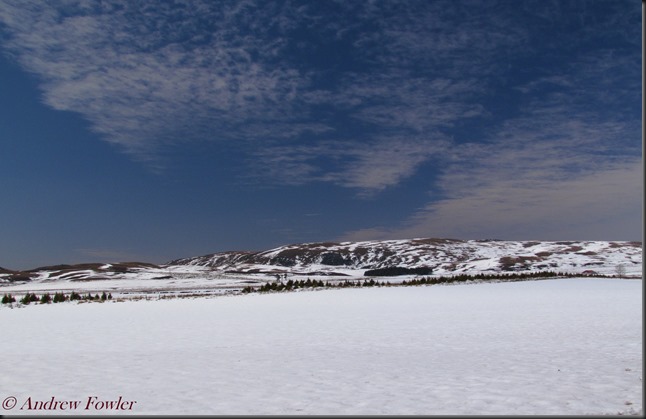
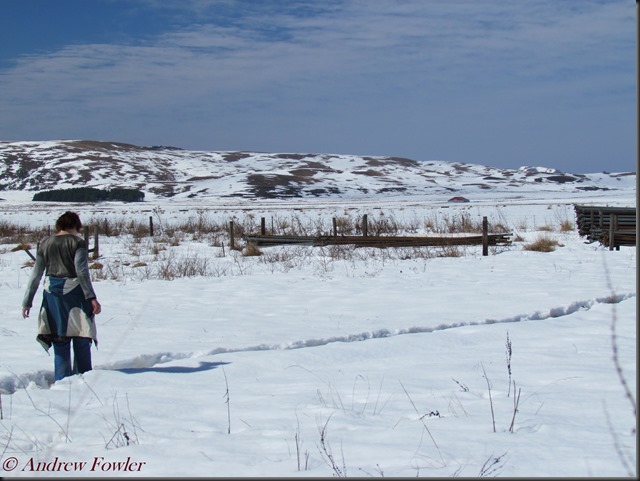
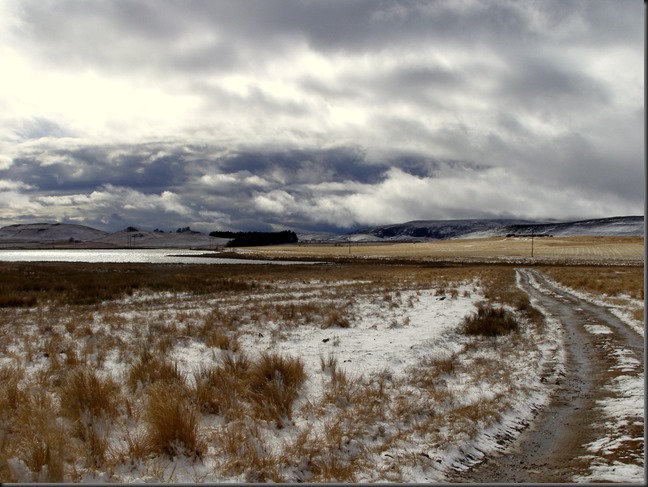
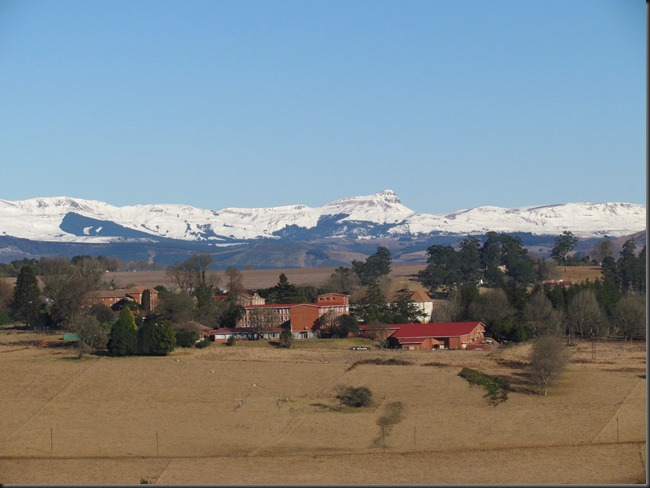
This weird white stuff that we know so little of, will melt and run to the streams and rivers. Every river flyfisher in the country has a deep understanding of what this means. It is a half way respite from drought. A treasured, somewhat rare, and welcome injection of water, to keep our streams limping through the winter until spring’s respite.
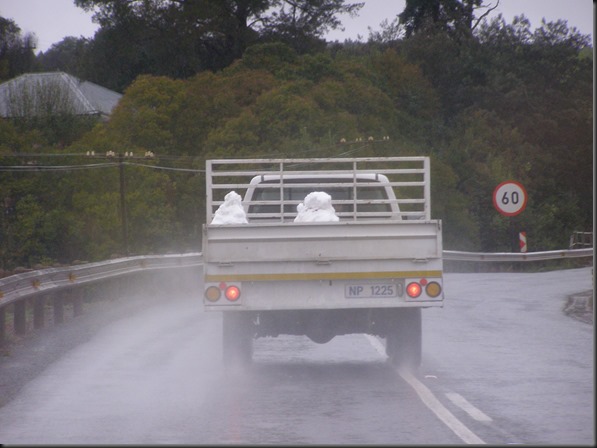
3 Responses
Looks like heaven Andrew!
It is in a sense: a high altitude lake with expansive shallows where you can lose yourself for hours in the enormity of the landscape.
The stark contrast of light off the water and dark landscape leaves it open to any amount of imagination.